
Disclosure: This article contains affiliate links, meaning that when you make a purchase, I earn a small commission. For more information, see the site Disclaimer .

College essay don’ts: 37 Things to Avoid In a college essay
Knowing what not to write about in a college essay is just as important as knowing what to write about!
This post is all about college essay don’ts , including college essay topics to avoid and how not to write your college application essays.
It’s so important to know what NOT to write about in your college application essay. Whether you’re crafting your essay for the Common App or writing shorter college-specific essays, you need to know how not to write a college essay.
Choosing the wrong topic for your college application essays could mean that you don’t get admitted to your dream school or you miss out on scholarship money.
Since you really only have one chance to get it right, you need to know what topics to avoid in your college admissions essays, general college essay don’ts, and what other pitfalls to avoid when writing your college essays.
Essay writing may feel overwhelming and stressful, but knowing what not to do will help you write a great college essay!
What not to write in your college application essay
So you know exactly what not do in college admissions essays, here are 37 college essay tips about college essay don’ts. Follow this advice to know what not to write about in your college essay!
1. Don’t restate the Essay prompt
Start your essay with a hook. Start with dialogue. Start by setting the scene.
Don’t start by restating the essay topic! The reader knows the essay prompts, so just start telling your story.
A great story will immediately grab the attention of the admission officers and make them want to keep reading!
2. Don’t try to be funny in your college admissions essay
There’s a good chance that what you think is funny may not be funny to the admissions officer. And even if your admissions officer thinks it’s funny, the dean of admissions may not agree.
Clever writing that naturally tells a funny story will get you further than trying too hard to make everyone laugh.

3. Don’t swear
You might not mind vulgar language, but many people do. It will come off as tasteless and crass. Simply put, curse words should not be part of your college admissions essay.
4. Don’t just tell the reader what you think
Tell the reader what you did, how you felt, how you changed—not just what you think. Admissions officers don’t want to read about what you think in the abstract.
They want to know what has happened to you in life, how that’s affected you, and what you did as a result.
Write an engaging, interesting story that shows the reader how you’ve grown and what you’ve learned.
5. Don’t try to Appear perfect
It’s okay that your life is messy and you don’t have it all together. It’s okay that you’re not super organized and you don’t know what you want to be when you grow up.
Your college essay doesn’t need to be about how awesome you are (really, it shouldn’t be!). It just needs to be about the real you. Remember, your personal essay for college should be just that—personal!
6. Don’t brag
Your achievements are all listed on your resume.
Writing about how great you are, how you saved the day, or how you’re a hero to others is not going to make a positive impression on the reader.
Leave the bragging to the people who wrote your letters of reference.
7. Don’t emphasize status
Avoid topics that emphasize your financial privilege. Voluntourism trips to aid people living in poverty in far-flung areas of the world is a key example of this.
Don’t write about going on a mission trip to a third world country to volunteer to help the less fortunate and how you learned how privileged you are. Just don’t.

8. Don’t lie
Don’t inflate your accomplishments. Don’t pretend to be someone you’re not.
If you write something dishonest in your essay, it won’t match the other parts of your application. If you were found to have been dishonest when writing your essay, you will not be offered admission at that college.
9. Don’t reveal too much
If you have faced personal challenges, like addiction, mental health struggles, or learning disabilities, those struggles are part of you. You should feel proud of overcoming them.
But your college admissions essay is not the place to share your most deeply personal experiences.
Some college admissions officers may read about your challenges and want to welcome someone with your tenacity and spirit to their campus.
Unfortunately, most admissions officers will read about your challenges and worry that you will face similar issues at their university.
Many colleges choose not accept applicants who have demonstrated past mental health issues. This might not seem fair, but it is reality. Don’t hide your true self or be dishonest, but carefully consider how much you want to reveal in your admissions essay about your private struggles.
10. Don’t write about illegal activities
It’s a safe bet that most colleges do not want to admit students who have a history of participating in illegal activities.
Even if you plan to talk about drug use, alcohol use, jail time, or committing crimes as a way to show growth and discuss lessons learned, illegal activities show a lack of maturity and questionable judgement.
Writing about criminal behavior will not reflect well on you as a candidate for admission. Illegal activities make bad topics for college essays.
11. Don’t summarize your resume
This is one of the biggest college essay don’ts! Your college essay is your opportunity to tell the college admissions office who you really are and what really matters to you.
Your resume already lists your activities, and your transcript details your grades. Your college essay isn’t the place to review these facts; it’s your chance to stand out by telling your story.
12. Don’t tell a general story
Be specific. In fact, be very specific. Focusing on the details of your story will help make your college essay unique so that it stands out.
A good college essay will tell a story that could only have been written by you—no one else.
Instead of telling a biopic story of your life, focus on one aspect of your life—your beliefs, a meaningful experience, a key event—that explains who you are and what matters to you.

13. Don’t write about cliché topics
Avoid writing about the sports victories and defeats. Winning a big game or losing a championship game might mean a lot to you, but sports are common topic and best avoided.
Don’t write about overcoming an academic setback or a romantic breakup.
14. Don’t write about something controversial
You don’t know who will be reading your college admissions essay, and they might not agree with your views on controversial topics.
Moreover, your reader might not appreciate how you approach a sensitive topic. You might appear close-minded and unempathetic.
The last thing you want to do is make the admissions officers reading your essay think you would bring discord to the campus community.
15. Don’t undervalue the small stuff
Great essays can be crafted from the small, personal details of daily life.
Don’t underestimate what interesting essays can be written about your morning routine, your favorite family recipe, your relationship with your sibling, or what you do on a snow day.
In fact, some of the most memorable, best essays have been about a random item, food, or daily routine.
16. Don’t go negative
Criticizing other people, your current school, or anything else will probably just make a bad impression on your readers.
Don’t whine about your life. Negativity says more about you and how you perceive the world around you than it does about anything else. Certainly don’t criticize the college you’re applying to!
If you do want to write about negative experiences you’ve had, quickly move on to discussing what you’ve learned or how you’ve grown as a result of those experiences.
17. Don’t be pompous
Never assume that you know better than your readers or that your approach is the only way.
Don’t tell your reader what they should think. Avoid making generalized value judgements.
18. Don’t go completely off topic
Don’t try to stand out by submitting a poem or creative writing sample.
Write a thoughtful, well-crafted essay about yourself, just like they asked for.
Show that you respect the school admissions committee’s request and can follow directions.
19. Don’t ignore the prompt
College admission essay topics are designed to allow you a lot of freedom in how you answer. Craft a story that tells something about you, within the framework of the prompt.
Just double check that your essay answers the prompt, to make sure you didn’t veer off topic as you wrote and edited the essay.
Also know that you can write about whatever you’d like to . In your essay writing process, if you find that the first prompt you chose isn’t working out, choose a different one and start again.
20. Don’t get the tone wrong
Your college admissions essay is not an expository essay, formulaic and devoid of warmth. Nor is it the right time for you to use all the fancy words you’ve been studying for the SAT.
Your college admissions essay should be engaging, show your personality, and sound like you—a teenager reflecting on your life thus far.
21. Don’t write a trite conclusion
If your essay has done its job, you shouldn’t need to sum it all up for the reader in a neat little final sentence.
If you have shown your reader what you’ve learned, how you’ve grown, or who you are, you don’t need to say it explicitly at the end of your essay.
The conclusion is often the hardest part of the essay to get just right, so don’t worry if it’s hard to find the perfect words. Take a break from writing it and come back in a few days to get a fresh perspective on what you’re trying to say.
22. Don’t wait until the last minute to Write
Start writing your college admissions essay weeks, if not months, before its due. Senior year is an incredibly busy time, so it’s a great idea to get started on your college admission essays as early as possible.
Leave plenty of time to think about what you want to say, revise and edit, and finalize the essay. You’ll be amazed at how your essay can improve if you allow ample time to work on it.
If you’re going to apply early decision or early action, consider starting to work on your main essay the summer after junior year, before your senior year even starts, or early in the fall of senior year.
23. Don’t ignore the word count
You don’t want to write too much or too little. Aim to be within a few words of the word limit. Express yourself clearly and concisely.

24. Don’t repeat your resume
When you’re writing your personal statement essay, don’t just repeat your high school resume.
Your personal essay is your chance to talk about an aspect of your personality or life experiences that can’t be found anywhere else in your college application.
The list of courses you’ve taken (and your grades) tell about your academic interests. So there’s no need to turn your essay into a list of your academic achievements!
Your extracurricular activities show what you’re interested in and how you use your time. If you want to discuss how your extracurricular activities have been formative experiences for you, focus on one particular example. Don’t re-list all your volunteer experiences!
Your personal statement essay should reveal something about you that doesn’t show up in the rest of your application.
25. Don’t write about an “example” topic
If you have read some amazing examples of college essays, and you’re thinking that you could write on that same topic, don’t.
Chances are, if your English teacher pointed out those examples, or you found them via a Google search, every other high school senior (and every school admission officer) has seen those essays too!
Instead, dig deep and write your own amazing personal statement !
26. Don’t copy and paste
It’s completely fine to use the Common App to submit your personal essay to every school on your list (as long as they accept the Common App, of course).
But for each college’s specific essays, tailor your essay to each school. Include specific details about each college that make you want to go there. And make sure your responses are appropriate to the culture of each college.
If you do copy and paste your essays, be sure the essay doesn’t refer to the wrong school!
27. Don’t overuse the thesaurus
Everyone gets stuck using the same words over and over again, and it’s fine to check a thesaurus when you’re writing.
But don’t use big words just in an attempt to impress the college admissions officers. Don’t use words you don’t really understand to try to sound smart.
For a great college application essay, write naturally in your own voice and let your true personality show.
28. Don’t plagiarize
If you’re submitting someone else’s college essay as your own, you’re giving up the chance to share your unique story with the admissions office.
You’re also risking an automatic rejection if you’re caught!
29. Don’t be fake
Use your essay to tell the admissions officers what you want them to know about you.
Don’t try to guess what the admissions officers would like for you to say or try to be someone you’re not.
Don’t invent a tragic event in your past, claim to have done hours and hours of community service you haven’t done, or exaggerate any aspect of your life.
Be authentic, write with your own voice, and craft an essay that stands out from the other applicants.
Simply take your time to craft a thoughtful essay that tells your personal story. Talk about your unique perspective on one specific experience in your life, using your authentic voice.
30. Don’t write a school essay
Your college admissions essay is not a five-paragraph expository essay that you would write for English class.
A winning college essay should have a beginning and an end, but the part in the middle should tell a good story, not make an argument in three points.
The expository essay style of writing might be what your English teacher wants, but it makes for bad college essays.
For a college application, a well-written essay will examine your personal growth, your unique experience in life, and the different perspectives through which you see the world. And you should do this by crafting an intriguing story about a specific moment or experience that was significant to you.

31. Don’t Avoid feedback
If you’re feeling stuck, feel free to ask someone else—a teacher, parent, family member, or friend—to read your essay. Getting feedback on your entire essay is the best way to get a sense of how admissions officers will respond to reading it.
Feedback does not mean that they tell you what to write or how to write it.
Feedback should mean getting input from someone else can help you learn where your essay veers off point or where you need to dig deeper to tell a better story.
32. Don’t skip editing
Please allow enough time to write AND edit your essay. Ideally, you will write a first draft of your essay, then edit it, then get feedback, then edit it again, then write a final draft (then proofread it—see below).
Expect to write at least three or four, and maybe many more, drafts of your college application essay. Your essay will improve with each round of editing.
The essay writing process can be time consuming, but in the end you’ll have a strong essay to share with college admissions offices, so it will be worth it!
33. Don’t overedit
What? Didn’t I just tell you to edit?
Yes, absolutely. Just be sure that after you’ve shown your essay to trusted readers and you’ve made your edits, your story still remains.
The essay should still have your voice and should tell the story you want to tell.
34. Don’t skip proofreading
After you make your edits and write a “final draft,” you might want to click send and submit your essay. But not so fast!
Take time to do a final proofread of your essay.
Better yet, ask a teacher, college counselor, or someone with excellent grammar and spelling skills to proofread your essay. Having a fresh set of eyes on your essay will help ensure it is error-free.
35. Don’t just rely on Spellcheck
It’s really important to have an actual person proofread your essay.
Spellcheck and other editing software won’t necessarily catch grammar errors, typos, or poorly structured arguments.
It’s always a good idea to trust the final proofread of your essay to a person, rather than technology.
36. Don’t submit your essay at the last minute
You never know when a website will get glitchy!
Don’t take a chance that the Common Application or an individual university’s website won’t act up at a crucial moment. Do your best to upload your college essay at least a day before it’s due!
The admissions process is stressful enough without adding in technical errors. Don’t risk missing the deadline by procrastinating!
37. Don’t submit an incomplete essay
When you’re in the Common App website or a specific college’s application portal, and you attach your admission essay, scan it quickly before hitting the submit button.
Be sure you attached the correct file or that the complete essay transferred when you copied and pasted it into the online form.
It won’t matter if you write a great essay if you don’t submit it correctly!
Final thoughts on college essay don’ts and what not to write in your college essay
Personal essays are a key part of the college application process. College admissions counselors, especially at smaller colleges, use college essays to learn more about the applicants applying for admission at their school.
An amazing college essay might not make up for bad grades or a lack of extracurriculars, but a poorly written essay may push your application into the reject pile. This is especially true now that test scores are usually optional.
Successful essays allow admissions officers to learn about your personal qualities, your take on global issues, and how you might contribute to campus life.
Writing a great college admission essay is the most important thing you can do to make a great impression on the admissions team.
After looking at so many college applicants, test scores, GPAs, and awards all blend together. It’s the personal essays that stand out when admission counselors are deciding which high school seniors will be accepted.
So, it’s worth taking your time to write the best college admissions essays you can.
By avoiding all these college essay don’ts, you’ll know what not to write in your college essay.

9 tips for How to Write a College Essay That Stands Out
Are you wondering how you’ll manage to write a college essay that stands out from all the other admissions essays? How do you even start writing a standout college essay? If you’re a high school senior…

Can I use the same essay for different colleges?
Can you submit the same essay to different colleges? Yes, no, and maybe. You have so many essays to write for college applications! There’s your main college admissions essay, or the personal statement. There are college…

How to Choose a Unique College Essay Topic
Learn how to write a unique college admissions essay that makes you stand out.
Graduate of Brown University, higher ed professional, and mom of three. Sharing everything I’ve learned about college with you.
Similar Posts

High School Senior Year Bucket List: 150 Fun Things to Do
Are you looking for the best senior year bucket list? This post will inspire you with the absolute best…
Are you wondering how you’ll manage to write a college essay that stands out from all the other admissions…
Can you submit the same essay to different colleges? Yes, no, and maybe. You have so many essays to…

Best Questions to Ask at a College Interview
Learn what questions to ask at a college interview: questions to ask a college admissions counselor, a college alum, or a student interviewer.

How to Prepare for College in High School: Timeline and Tips
Are you wondering what to do each year of high school to get ready for college? What are the…

Make a Great impression at your college admissions interview
Are you wondering how to make a great impression at a college admissions interview? College admission interviews can be…
Ultimate Guide to Writing Your College Essay
Tips for writing an effective college essay.
College admissions essays are an important part of your college application and gives you the chance to show colleges and universities your character and experiences. This guide will give you tips to write an effective college essay.
Want free help with your college essay?
UPchieve connects you with knowledgeable and friendly college advisors—online, 24/7, and completely free. Get 1:1 help brainstorming topics, outlining your essay, revising a draft, or editing grammar.
Writing a strong college admissions essay
Learn about the elements of a solid admissions essay.
Avoiding common admissions essay mistakes
Learn some of the most common mistakes made on college essays
Brainstorming tips for your college essay
Stuck on what to write your college essay about? Here are some exercises to help you get started.
How formal should the tone of your college essay be?
Learn how formal your college essay should be and get tips on how to bring out your natural voice.
Taking your college essay to the next level
Hear an admissions expert discuss the appropriate level of depth necessary in your college essay.
Student Stories
Student Story: Admissions essay about a formative experience
Get the perspective of a current college student on how he approached the admissions essay.
Student Story: Admissions essay about personal identity
Get the perspective of a current college student on how she approached the admissions essay.
Student Story: Admissions essay about community impact
Student story: admissions essay about a past mistake, how to write a college application essay, tips for writing an effective application essay, sample college essay 1 with feedback, sample college essay 2 with feedback.
This content is licensed by Khan Academy and is available for free at www.khanacademy.org.
What are your chances of acceptance?
Calculate for all schools, your chance of acceptance.
Your chancing factors
Extracurriculars.
What If I Don’t Have Anything Interesting To Write About In My College Essay?
What’s covered:, what makes for a good college essay, how to write a dazzling college essay, will your essay make or break your college application.
College applicants are constantly told that in order to be attractive to admissions committees they need to stand out—but how can you stand out when you live a pretty ordinary life? Lots of students worry that the events of their everyday life are too boring or clichéd to be the topic of a really good essay.
That being said, there’s no need to worry! Your college essay doesn’t need to be about an extraordinary experience you’ve had. Rather, it should depict you as extraordinary. “Uninteresting” topics actually make great college essays because the topic itself doesn’t carry the essay—the student’s individuality does.
Read on for tips on how to write a college essay about an “uninteresting” topic that still shows off your personality, values, interests, and writing skills.
The purpose of your college essay is to humanize yourself to admissions officers so that they can see the ‘real you’ behind the grades and test scores you’ve submitted.
Our article about awesome essay topics gives five structures for a good college essay (though there are many more!):
- A unique extracurricular activity or passion
- An activity or interest that contrasts heavily with your profile
- A seemingly insignificant moment that speaks to larger themes within your life
- Using an everyday experience or object as a metaphor to explore your life and personality
- An in-the-moment narrative that tells the story of an important moment in your life
As you might notice, only one of these essay topics references anything exciting, extraordinary, or unique. Set aside the idea that you need to write about something dramatic and unusual. Unusual experiences are not what is most important to admissions officers—rather, it’s important to position yourself as someone that an admissions officer would like to see at their university.
Some things that make for a bad college essay include:
- Not answering the prompt
- Stretching a prompt so that your answer doesn’t make sense
- Writing about a controversial issue, particularly in an irreverent way
- Showing prejudice
- Writing about a clichéd topic
- Writing about anything that advocates disrespect for authority—this can be anything from insulting a teacher to doing an illegal activity
- Assuming the opinions of your reader
Beyond these boundaries, you can pick any topic you want. It’s how you write about the topic that matters!
Read on for our advice on writing a compelling essay that offers a window into your personality and life experiences.
Our guidance for writing a dazzling essay about an “uninteresting” topic involves:
- Picking a value or fundamental truth about yourself that will humanize you to admissions officers and tell them something important about yourself
- Identifying an experience that exemplifies that value or fundamental truth
- Writing a thoughtful essay that uses your “uninteresting” experience to say something interesting about yourself
1. Get the Ball Rolling
There are many different practices you might find useful as you start brainstorming your college essay. These include freewriting, listing, outlines, and more. That said, don’t feel restricted by brainstorming exercises. Remember that they’re meant to start the process and get the juices flowing. Write down anything and everything that springs to mind—who knows what it could turn into?
Sometimes simple questions can open students up and reveal what is important to them. Here are some questions that might help you brainstorm:
- What’s the last news story you read and found interesting? This question can help you identify an issue that you are passionate about or a cause that matters a lot to you.
- What is your proudest accomplishment so far? What about it makes you feel proud? This question can reveal what you consider most important about yourself, which is likely something you find important in life.
- When have you been the most nervous, and why were you nervous? What was the outcome of the situation? This could be anything from an important performance to standing up for an issue you care about. People’s fears can be an indicator of what they value.
- What’s the most recent topic you researched on your own just for fun or self-improvement? Have you found yourself going down a rabbit hole of Wikipedia articles recently? Your interests are important to you and say a lot about you.
- What have you learned from the community you grew up in? What do you value about that community? Your individual history and family history are very important factors in who you are as a person.
- When have you most recently changed your mind about something important? If growth is important to you, admissions officers want to hear about it.
2. Pick Your Value
If you aren’t going to have a flashy topic, you need to make sure that you use your “uninteresting” topic to say something interesting about yourself. When the admissions officer finishes reading your essay, they should feel like they know you better than when they started reading. So what are you going to tell them about yourself?
Your value or fundamental truth about yourself doesn’t necessarily need to be positive, but neutral/negative values will probably need to be accompanied by self-aware reflection throughout your essay.
Values and fundamental truths can be things like:
- I have a growth mindset
- Family loyalty is very important to me
- Giving gifts that people will treasure is important to me
- I don’t like to be like everyone else
- Embarrassment is a major fear of mine
- I don’t like seeing others in pain
- I am super curious
- I always like to be busy
- I don’t like making mistakes
- Having fun is important to me
- I’m a people pleaser
- Self-care is important to me
3. Pick Your Experience
You will want to pick an anecdote, experience, or example that can serve as a channel through which you can communicate your value. Finding significance in a small incident can be incredibly compelling for your readers. On the other hand, you could explore the meaning of something that you do every day or every week. You can even simply muse on one relationship in your life that speaks to your value. Once you have chosen an experience, you have your topic!
Some “uninteresting” essay topics with interesting implications could be:
- Making dinner with my mom on Fridays allows me to see how matriarchal strength has been passed down in my family
- Volunteering at my local community center is how I take care of the natural caretaker in me
- Going to the mall with my best friend is important to me because choosing which stores to go into is structured spontaneity, and I need structured spontaneity
- Making cards for my friends’ birthdays started as a way to save money, but I really enjoy how it fuses technical and artistic abilities in a unique way
- Singing Disney show tunes in the car is when I feel most relaxed because people around me put a lot of pressure on me to grow up fast and sometimes I miss being a kid
- Going to the hospital to visit my uncle after his surgery was uncomfortable for me because I love others so strongly that it truly hurts me to see them in pain
- Sleeping with my same stuffed animal every night makes me feel safe, which is important to me because my sister’s health issues cause me anxiety and it’s nice to have something stable to rely on
Some final notes on choosing your essay topic:
- The topic you initially like the most may not be the one that allows you to write the best possible essay. Be open to trying something different.
- You don’t need to commit to a topic right away. If it becomes clear after you start outlining or writing that your initial plan isn’t going to work as well as you would like, there’s nothing wrong with altering your topic or starting over with a new topic.
If you still feel stuck, we recommend you take a look at the school-specific supplemental essay questions presented by the colleges to which you’re not applying. One of these prompts might spark an idea in your mind that would also be appropriate for the colleges to which you are applying. Check out the Essay Breakdown posts on the CollegeVine blog for a convenient way to look at this year’s essay questions from many different competitive schools.
4. Make Your Experience Shine
Once you’ve selected a topic, you’ll need to figure out how to develop an essay from it that is technically skillful, compelling to the reader, and true to the vision of yourself that you’re working to portray in your application. Remember, the value of your essay is much more in how you write about your experiences than it is in what experiences you write about.
To write a truly effective college essay, you’ll need to focus not just on depicting your chosen experience, but also on expressing your personal experience in an interesting manner. The experience is simply your scaffolding. The focus of your essay should be what that experience says about you—or what you make it say about you.
When writing about an “uninteresting” experience, you will want to be reflective, be self-aware, and show maturity in your view of your experience. Focus on communicating your thoughts and emotions in a way that evokes emotion in your reader and makes them feel connected to you.
Details are also important to pay attention to while writing your essay, as they’ll bring life and context to your story. Vivid and evocative details can turn your “uninteresting” experience into a relatable and interesting scene in your reader’s imagination.
With skillful writing, powerful word choice, and a good sense of how to develop a fragment of an idea into a longer piece of writing, you can make any topic—no matter how “uninteresting” it may seem—into a mature exploration of your values and a showcase of your skills as a communicator.
It depends . A brilliant essay can’t make up for severe deficiencies in your academic qualifications , but it will still have a significant impact, particularly at smaller and more competitive schools.
If you’re “on the bubble” for admissions, an essay that makes an admissions officer feel like they know you could give them a reason to accept your application. On the other hand, an essay that’s carelessly written, inappropriate, or full of technical errors will hurt your chances of admission, even if you have great qualifications.
If you finish your first draft of your essay and are still worried that your “uninteresting” topic will break your college application, we recommend that you get feedback. Sometimes it can really help to have someone else determine whether or not your voice is shining through in your work. Feedback is ultimately any writer’s best source of improvement!
To get your college essay edited for free and improve your chances of acceptance at your dream schools, use our Peer Review Essay Tool . With this tool, other students will tell you if your essay effectively humanizes you.
Related CollegeVine Blog Posts

- High School
- College Search
- College Admissions
- Financial Aid
- College Life

5 College Essay Topics You Should Never, Ever Write About

College application essays are often the most challenging part of the application process. And while they may not be the most important part of your application, they can differentiate you from similarly qualified applicants.
They’re also the only opportunity you get (unless the college offers interviews) to showcase your personality, values, and voice.
To avoid writing your essay on a topic that might earn you a rejection letter, check out the five topics you should never write about in your college essay below.
1. Controversial or Hot-Button Issues
Colleges do want you to have strong beliefs that you’re willing to stand for, and some essay questions give you the opportunity to do just that.
Still, it’s best to avoid especially polarizing topics such as religion, abortion, and other hot-button debates. You don’t know who will read your college application essay or what they believe. To a degree, this mystery person holds your future in their hands, and you don’t want to risk offending them.
In some cases, it depends how you frame the topic. For instance, if church was a major part of your upbringing and is very meaningful to you, you could mention this aspect of your identity in a college application essay. However, it’s important to do so without implying that your religion is better than others or attacking people who don’t practice your religion.
If you’re not sure, follow the golden rule of college application essays: When in doubt, leave it out.
2. Topics That Focus on Someone Else
The college application essay is your chance to help admissions officers get to know you . For this reason, you should avoid topics that put the focus on someone else.
We encourage students to avoid writing “my hero” essays because they’re often overdone, and they put the focus on your hero instead of you. John Mahoney, the director of undergraduate admissions at Boston College , says, “After reading [hero essays], we’d often love to admit Mom or Dad, but the applicant has told us nothing about themselves.”
If you do write about someone who influenced your life, make sure that you only briefly describe them. Spend most of the essay focusing on yourself and how your personality or choices have been shaped because of this person.
Similarly, one topic you should never write about in your college essay is romantic relationships. It’s hard not to be cliché when writing about young love, and a relationship shouldn’t be the main aspect of your life that you want to showcase for college admissions officers.
The bottom line is this: No matter how much you love your mom, dad, grandparents, or significant other, your college application essay needs to be about you .
You may have been advised to take risks with your college application essays, but you don’t want to be too risky.
3. Risky or Inappropriate Subjects
Sometimes, applicants write about obstacles they’ve overcome or illicit/illegal topics including arrest, sexual experiences, drugs, and alcohol. In a few cases, these topics have been addressed effectively. But for the most part, it’s better to avoid subjects that could reflect poorly on your judgment and morals. After all, you don’t want colleges to think you’re someone they’d rather not have on campus.
As we mentioned earlier, you don’t know who is reading your essay or how they feel about these subjects. It’s best not to offend them or make them feel uncomfortable.
For the same reason, we recommend avoiding profanity and graphic language in your essays. Gail Berson, the dean of admissions at Wheaton College , shares a story about an applicant with excellent grades and test scores who wrote a graphic essay about a violent video game. The admissions team found the essay off-putting, and the student was rejected. Had he chosen a “safer” topic, he would have received an acceptance letter.
Over-the-top humor can also be a risk, but a well-placed joke or two is okay (if it reflects your personality). Keep in mind that humor can sometimes fall flat in print, and admissions officers don’t like essays that come across as cheesy or “cutesy.”
4. Lies and Exaggerations
Often, students feel pressure to write about a completely unique, never-before-seen essay topic that will help them stand out. When these students can’t think of anything “cool” or “special” enough, they make something up.
Don’t do this.
It’s possible that college admissions officers may suspect you’re lying, which is a poor reflection on your ethics and morals. Even if they don’t suspect you’re lying, you’ve missed your chance to showcase the real reasons that you’re a good fit for this school.
Remember that the purpose of a college admissions essay is to help admissions officers get to know you. If your essay is filled with lies and exaggerations, then you’ve missed the point entirely.
In fact, it’s important to write in your authentic voice and avoid using “fancy” vocabulary just to impress admissions officers. Your essay should truly sound like you.
You don’t have to scale the Himalayas or start your own successful charity to stand out. Even if your internship wasn’t with a multinational company or government organization, discussing minute experiences and how they contributed to your growth is more valuable than stretching the truth.
Some of the best college application essays are written about small moments that are meaningful to the applicant. You’re the only person with your exact combination of personal qualities, beliefs, values, and experiences, so you don’t need to lie or exaggerate to make your essay unique.
5. Information Already Covered in Your Application
The essay is supposed to reveal information that you haven’t had a chance to discuss elsewhere in the application. It’s meant to be a deeper dive into who you are beyond the numbers and accolades.
While your essay may expand on points briefly mentioned in the application, it shouldn’t extensively cover information that the admissions team already knows.
Make sure that your essay is more than a recitation of the accomplishments, activities, and experiences already hashed out in the application. If your essay doesn’t present any new information, it will be dull and forgettable. If you really want to make an impression, let your personality shine through.
Bonus: Overseas Charity Trips
Both students and parents tend to think that writing about overseas volunteering or charity trips is a sure-fire way to impress admissions officers. In fact, the opposite is true.
Essays that focus on this type of topic usually conclude in one way: The student discusses how lucky she is to have her lifestyle; she now possesses a newfound appreciation for all the opportunities and things she has. She is thankful.
As heartfelt as such a conclusion may be, it’s important to avoid cliches. There’s nothing distinguishing about appreciating your life. Admissions officers hope your reaction wouldn’t be anything different!
Additionally, these types of essays frequently present the student as some type of savior, who is privileged enough to spend the money to fly and participate in an activity overseas. This “savior” trope could irk the admissions officer. Remember, you want to sound genuine, not sanctimonious.
The one exception to this rule is if you were able to receive a scholarship or work toward funding your own trip. You also want to demonstrate substantive contributions to the community you helped overseas. Basic volunteering won’t cut it, since you could have done the same thing in a local neighborhood.
Only consider this topic if you went above and beyond volunteering to help an overseas community. Otherwise, stay away from it.
The Key Takeway
In most cases, your essay isn’t the factor that determines your admission to college. However, an offensive, off-putting, or forgettable essay can hurt your chances. By avoiding the topics listed above, you’ll ensure that your essay helps — instead of hurts — your chances of admission.
Author: Jason Patel
Jason Patel is the founder of Transizion, a college counseling and career services company that provides mentorship and consulting on college applications, college essays, resumes, cover letters, interviews, and finding jobs and internships. Jason’s work has been cited in The Washington Post, BBC, NBC News, Forbes, Fast Company, Bustle, Inc., Fox Business, and other great outlets. Transizion donates a portion of profits to underserved students and veterans in of college prep and career development assistance.
More Articles By Niche
The FAFSA has undergone several changes this year, causing unexpected delays for both students and colleges.
Here are my seven tips to the early high schooler in preparing for a strong college application.
We spoke with staff and faculty at Interlochen Arts Academy and Interlochen Arts Camp to get their best tips on overcoming perfectionism, developing confidence, and showcasing your artistic gifts.

How to Write College Application Essays
Use the links below to jump directly to any section of this guide:
College Application Essay Fundamentals
How to prepare to write your essay , how to approach different essay types, how to structure your essay , how to revise your essay, how to find essay writing help , resources for teaching students how to write a college essay, additional resources (further reading).
Of all the materials in a college application, the essay provides the greatest opportunity for you to set yourself apart. Unlike the transcript or resume, the essay is creative and expressive; in it, you can show the admissions counselors who you are and what you can do (that is, how well you can write!). A good application essay should have a memorable main idea, a cohesive structure, and a strong introduction and conclusion. Although essay topics can vary by college, the most common prompts deal with personal experiences and aspirations for the future. This guide contains a diverse set of resources to help you orient yourself to the college application essay and, ultimately, to write the most competitive essay possible.
The college application essay is a requirement for admission to almost all institutions of higher learning. Though in some ways it resembles essays you've written in class or on standardized tests, in other ways it's a unique writing exercises with its own particular requirements. Use the resources below to help you understand how the essay should be structured and what kind of content to include.
"How Long Should College Application Essays Be?" (Learn.org)
This webpage guides you through some basic tips on writing the college essay—including essay length, sticking to the prompt, and maintaining an original tone.
"College Application Essay" (College Board)
This webpage from the College Board discusses the different types of application essays, what length you should aim for, and most importantly, why colleges value this aspect of the application so much.
"College Essays, College Applications" (College Board)
The College Board's website is a great resource for any student looking to apply to college. This webpage contains several links to helpful resources, including sample essays and genuine student interviews.
"Timeline for College Applications" (College Essay Guy)
This colorful, one-page guide from a college application specialist offers an illustrated timeline for high school students looking to apply for college.
Before putting your ideas down on paper, it's important to conceptualize your essay, to craft strategically your tone and style, and, crucially, to choose a topic that suits you and the school to which you're applying. The resources in this section include writing tips, lists of common mistakes you should avoid, and guides dedicated to the college application essay.
How to Plan Your Essay
"3 Common College Essay Mistakes to Avoid" (CNBC)
This article from CNBC broadly outlines the most common mistakes students make when writing their college application essays. Although these mistakes may seem obvious, even the most experienced writers can fall into these common traps.
"7 Effective Application Tips" (Peterson's)
This article from Peterson's (a company providing academic materials for test prep, application help, and more) lists seven pieces of advice designed to make your writing pop.
"The Secret to Show, Don't Tell" ( The Write Practice Blog)
You've heard it before: show, don't tell. This is a great writing tip, but how do you pull it off? Here, the writing blog The Write Practice outlines how you can make your writing more descriptive and effective.
"Passive Voice" (University of North Carolina)
Avoiding passive construction is a subtle yet effective way to upgrade any piece of writing. Check out this webpage from a university writing center for some tips on recognizing and avoiding passive voice.
"Using Appropriate Words in an Academic Essay" (National University of Singapore)
There are many ways to upgrade your vocabulary. Often, words can be replaced with more impressive substitutes, phrases can be shortened or lengthened depending on context, and transitions can be used for a smoother flow. The link above expands on these strategies and offers several others.
How to Brainstorm Topic Ideas
"Bad College Essays: 10 Mistakes to Avoid" (PrepScholar)
This article from a well-known tutoring service and test prep program describes what to avoid when writing your essay. Essays that are too graphic, too personal, or too overconfident are all problematic, and this article explains why.
"5 Tricks for Choosing Your College Essay Topic" (CollegeXpress)
Lost on how to choose a topic? This webpage from CollegeXpress outlines five sources of inspiration you can mine for ideas as you're getting started.
"The College Admission Essay: Finding a Topic" (The Choice Blog)
This article from New York Times blog The Choice breaks down three essential questions to ask yourself when choosing a topic for your college essay.
"COLLEGE ESSAY GUIDE: Choosing a Prompt for the Common Application" (YouTube)
In this five-minute video, a Yale student discusses how to choose a college essay prompt and how to approach the essay writing process. His channel is filled with original videos on the college application process.
"Where to Begin? 3 Personal Essay Brainstorming Exercises" ( CollegeVine Blog)
Approaching the Common App essay prompts can be difficult. This blog post explains several tactics you can use to narrow down your options, such as writing down a list of your greatest convictions.
"Using First Person in an Academic Essay: When Is It Okay?" (WritingCommons.org)
Most high school students are told to avoid using the first person point of view; this can be confusing when writing college essays, which typically ask what you think. This article breaks down when (and why) it's acceptable to write in the first person.
Although all college essays serve the same purpose - articulating why you should get into a college - they come in different kinds. While topics on the Common Application are relatively consistent from year to year, personal statements and so-called "supplemental essays" vary by institution. Each of these essays requires a slightly different approach. The resources in this section will prepare you to answer the various types of essay prompts you're likely to encounter.
Common Application Essays
CommonApp.org
The Common Application's official website is the best place to start getting acquainted with the service to which the majority of US colleges and universities now subscribe - a service which allows you to streamline your application process and minimize duplication of materials.
"What's App-enning" Blog (Common App)
The Common App runs a blog with a wealth of information on common application-related news, including periodic updates on common application essay prompts for each application cycle. You can practice brainstorming with old prompts, or even start preparing your application by looking at this year's prompts.
125 College Essay Examples (PrepScholar Blog)
Here, PrepScholar provides a variety of Common App essays that got their respective applicants into their desired schools. Along with the body text of the essays, the website provides analysis on what makes the essays so great.
A Few Essays That Worked (And a Few That Didn't) (NYTimes Blog)
This article analyzes unsuccessful essays, illuminating the ways in which they fell short. Although you should exercise caution and adjust your approach to your specific school, it's always good to pick up on general things to avoid.
Personal Statements
What Is a Personal Statement? (PrepScholar Blog)
Although personal statements and Common App essays are similar, not all personal statement essays are administered through the Common App. This article from PrepScholar's blog will provide you with everything you need to know about writing a personal statement.
Examples of Successful Statements (Purdue OWL)
The Purdue OWL online writing lab collate links on this page to several successful personal statement. It can be useful to read successful statements and to consider how and why the statements made an impact on their readers.
Past Threads on Advice for Writing Your College Essay (Reddit Post)
Although not about the personal statement per se , this Reddit post has links to several past threads that may be of use to any prospective college applicant.
What 10 Things Should Your Personal Statement Include? (Which University UK)
This site outlines ten things to consider when writing a personal statement, including outlining what you will bring to the course, not what the course will bring to you.
Supplemental Essays
How to Write Great Supplemental College Essays (IvyWise Newsletter)
Supplemental essays can often be challenging, asking a range of questions from the mundane to the oddly specific. This article from college application site IvyWise will break down example prompts to make them more approachable.
Write Your Supplemental Essays (College Essay Guy)
Looking for a comprehensive guide to supplemental essays? Look no further than this page provided by the "College Essay Guy," who breaks down how to write supplemental essays that ask different kinds of questions.
An Awesome Guide to the UChicago Supplement (Dyad)
Dyad, a college mentoring service, walks you through how to approach UChicago's supplemental essay question. Although the article is specific to UChicago, it contains general tips that are helpful to any college applicant.
Reading My Yale Supplement Essay (YouTube)
Josh Beasley is back in this short YouTube video, where he reads the supplemental essay that got him into Yale and extrapolates advice for current and prospective applicants.
A college application essay (like any academic essay) should have an introduction, a conclusion, and body paragraphs. Additionally, it should have overall coherence (that is, it should make a point) and cohesion (that is, it should flow well from paragraph to paragraph). We've collected the most relevant resources here to help you structure your college essay correctly and efficiently.
How to Make Your Essay Stand Out
College Essays That Stand Out From the Crowd (NYTimes)
This NYTimes article includes links to several recent essays that caught the eyes of the admissions readers by taking risks. You can even listen to an essay being read aloud by a current Princeton student.
50 Successful Ivy League Application Essays (Gen / Kelly Tanabe)
If you have some time on your hands, this hefty PDF document contains 50 essays from successful Ivy League applicants. After reading these essays, consider what they have in common and how they might be a model for your own essay.
Make Your Application Essay Stand Out (CampusExplorer.com)
In this article from CampusExplorer, you'll find general tips on how to make your essay more appealing to the admissions readers. The writers include general writing tips as well as more targeted advice for the tone and audience of the application essay.
How to Write a College Application Essay that Stands Out (Boston University)
This short video from BU's own admissions department touches briefly on what impresses their admissions readers, including risk-taking, memorable stories, and honesty.
Essay Structure (Monash University)
This chart from Monash University visually demonstrates how your content should be organized in order to keep your argument or story on track.
How to Write an Introduction
How to Start a Personal Statement: The Killer Opening (Which University UK)
Any good introduction both forecasts what your essay will be about and catches the reader's attention. This page will give you some helpful advice on starting your essay with a bang.
How to Start a College Essay Perfectly (PrepScholar Blog)
This article from PrepScholar shows you how to "hook" your reader at the start of your application essay with colorful language, a vivid story, and an "insightful pivot" to your main point.
Let Me Introduce Myself (Stanford University)
This article from Stanford U's alumni page details the first-line openings of the essays for some current Stanford undergrads.
Five Ways to NOT Start Your College Application Essays (PowerScore)
In this article, you'll learn five techniques to avoid, as they typically land a college application essay in the "reject" pile; these include beginning with dictionary definitions or famous quotations.
How to Write a Conclusion
Ending the Essay: Conclusions (Harvard University)
Harvard's writing center suggests bringing closure to your essay (that is, wrapping up your argument) while still expanding outward to broader applications or insights in your final paragraph.
Concluding Paragraph (Easybib)
Although you may have used Easybib to make a bibliography before, did you know they have many resources on how to write a good essay? Check out this page for succinct advice on what your conclusion should entail.
5 Ways to Powerfully End Your College Essay (College Greenlight)
This blog post instructs you to end with action (that is, a story or anecdote) rather than summary, giving you five ways to do this effectively, including addressing the college directly.
How to Write the Best Conclusion for a College Application Essay and Supplement (Koppelman Group)
The Koppelman Group, a college application consulting firm, warns you, above all, not to end "in conclusion" or "to conclude." They also provide targeted advice for the Common App and Supplement essays, respectively.
No essay is perfect in its first-draft form; college application essays in particular are limited by word counts that can be difficult to meet. Once you've communicated your ideas, you'll want to edit your essay in order to make sure it's the best it can be. You'll also need to cut or add words to make sure it's within the specifications set by the institution. The resources in this section include tips and tricks for revising your college application essay.
3 Ways to Increase Word Count (WikiHow)
Complete with illustrations, this WikiHow page outlines several ways you might go about substantively expanding your essay. These tips include clarifying points, reworking your introduction and conclusion, adding new viewpoints and examples, and connecting loose threads.
Admissions 101: What an Essay Word Limit Really Means (Veritas Prep)
In this blog post, Veritas Prep's college preparation tutors assure you that being a little over or under the limit is acceptable, recommending ways you can think about the word limit's purpose.
College Essay Word Limit - Going Under? (College Confidential)
In this College Confidential discussion forum, students discuss the possible ramifications of writing under the word limit for a college essay.
How to Increase Your Essay Word Count (WordCounter)
This article from WordCounter outlines different ways you might go about meeting word count, including addressing different viewpoints, adding examples, and clarifying statements.
Hitting the Target Word Count in Your College Admissions Essay (Dummies.com)
This article details how to hit the target word count. Scroll down to the middle of the article for advice on where you should cut words from to meet word count.
Some Tricks to Reduce Word Count (EastAsiaStudent.net)
This article recommends simplifying your style, deleting adverbs, deleting prepositions, and revisiting connectives and adjectives to reduce word count.
Advice on Whittling Your Admissions Essay (NYTimes)
In this New York Times article, Andrew Gelb discusses how to go about cutting down your admissions essay in order to meet the requisite word limit.
How to Shorten an Essay Without Ruining the Content (Quora)
This Quora post from a concerned student yielded useful community responses on how to effectively shorten an essay without losing the original message.
Feel like you've hit a wall revising your essay on your own? You're not alone, and there are plentiful resources on the web through which you can connect with fellow college applicants and/or professional tutors. The links in this section will take you to free services for improving your college application essay, as well as two of the top paid writing tutor services.
College Confidential Forums
College Confidential is a free, public forum in which you can post your essay and receive feedback from current college students, current college applicants, and even teachers or other experienced users.
/r/CollegeEssays (Reddit)
This subreddit is a great place to look for crowdsourced help on your essay, ask questions about college essays, or even find a private tutor.
Essayforum.com
Essayforum.com provides another platform for students to share their application essays. Although this link takes you to the site's forum for applicants to undergraduate degree programs, you can submit and review essays in other categories as well. Varsity Tutors
Varisty Tutors offers tutoring services from freelance tutors based on location. Prices and services vary, but their site is easy to use and there are many tutors available to choose from.
Princeton Review
Princeton Review, one of the largest providers of college preparation tutoring (ranging from standardized test preparation to essay help) offers online essay tutoring services with a free trial period.
Using in-class time to prepare your students to write college application essays is, of course, rewarding, but can also be challenging. If you're a teacher looking to incorporate the college essay into your curriculum but you're not sure where to start, take a look at the useful resources below.
TeachersPayTeachers
College Essay Writing
This product includes material for more than one full lesson plan, including powerpoint presentations, assessments, and homework on the topic of college essays.
Narrative Writing Ideas and Prompts
Appealing to students 9th grade and up, this product includes lesson plans, handouts, and homework for developing narrative writing for the college essay process.
College Essay: Comprehensive 7-Session Workshop Series
This PDF includes entire courses, manuals, and handouts designed to teach students the ins and outs of the college essay process, either in an individual or group setting.
College Essay Revision Forms & Rubrics
These PDFs provide students with visual organizers and rubrics to assess their own writing and learn how to become better college essay writers.
Free Resources
Teaching the College Essay (Edutopia)
Teaching your students about writing the college essay can be incredibly intimidating -- as a teacher, how should you approach the process? This article from Edutopia outlines how to go about introducing the college essay to your students.
Essay Lesson Plan Ideas for College Applications (EssayHell)
If you're a teacher looking for a concrete lesson plan on college essays, this guide recommends using the first day to discuss the importance of the essay, the second day for brainstorming, and so on. Click on the link above to examine their full guide.
Help Your Students Write a Killer College Essay (EdWeek Blog)
This blog post goes over various techniques designed to help your students choose an appropriate topic and write their essay with passion.
The Biggest College Essay Mistakes & How to Fix Them (Talks With Teachers)
Looking to help your students avoid the minefield of mistakes in the college essay field? Check out this post from Talks With Teachers, a journal that shares "inspiring ideas for English teachers."
Curious to read more about college application essays, or to see fun and unusual examples of what students have written? The articles, blog posts, and books in this section are a good place to start surveying the field.
One Over-the-Top Admissions Essay (Huffington Post)
This piece from the Huffington Post talks about a humorous response to a Stanford supplemental essay topic, the so-called "letter to my future roommate."
College & University - Statistics and Facts (Statista.com)
In the process of writing your college essay, you may find yourself wondering who exactly goes to college, how many colleges there are in the United States, etc. This site gives the up-to-date statistics for various US demographics, both in aggregate and by university, as well as other information.
Who Made That College Application? (NYTimes)
This piece from the NYTimes outlines the history of the college essay from its origins in the 1800s, to the first "modern" college application, produced by Columbia University in 1919, to the present.
How They Got Into Harvard (Staff of the Harvard Crimson)
This highly-rated collection of successful Harvard application essays, available on Amazon, is both an entertaining read and an instructive resource for anyone looking for exemplary essays to use as models.
- PDFs for all 136 Lit Terms we cover
- Downloads of 1924 LitCharts Lit Guides
- Teacher Editions for every Lit Guide
- Explanations and citation info for 40,556 quotes across 1924 books
- Downloadable (PDF) line-by-line translations of every Shakespeare play
Need something? Request a new guide .
How can we improve? Share feedback .
LitCharts is hiring!

Purdue Online Writing Lab Purdue OWL® College of Liberal Arts
Welcome to the Purdue Online Writing Lab

Welcome to the Purdue OWL
This page is brought to you by the OWL at Purdue University. When printing this page, you must include the entire legal notice.
Copyright ©1995-2018 by The Writing Lab & The OWL at Purdue and Purdue University. All rights reserved. This material may not be published, reproduced, broadcast, rewritten, or redistributed without permission. Use of this site constitutes acceptance of our terms and conditions of fair use.
The Online Writing Lab at Purdue University houses writing resources and instructional material, and we provide these as a free service of the Writing Lab at Purdue. Students, members of the community, and users worldwide will find information to assist with many writing projects. Teachers and trainers may use this material for in-class and out-of-class instruction.
The Purdue On-Campus Writing Lab and Purdue Online Writing Lab assist clients in their development as writers—no matter what their skill level—with on-campus consultations, online participation, and community engagement. The Purdue Writing Lab serves the Purdue, West Lafayette, campus and coordinates with local literacy initiatives. The Purdue OWL offers global support through online reference materials and services.
A Message From the Assistant Director of Content Development
The Purdue OWL® is committed to supporting students, instructors, and writers by offering a wide range of resources that are developed and revised with them in mind. To do this, the OWL team is always exploring possibilties for a better design, allowing accessibility and user experience to guide our process. As the OWL undergoes some changes, we welcome your feedback and suggestions by email at any time.
Please don't hesitate to contact us via our contact page if you have any questions or comments.
All the best,
Social Media
Facebook twitter.
Featured Topics
Featured series.
A series of random questions answered by Harvard experts.
Explore the Gazette
Read the latest.
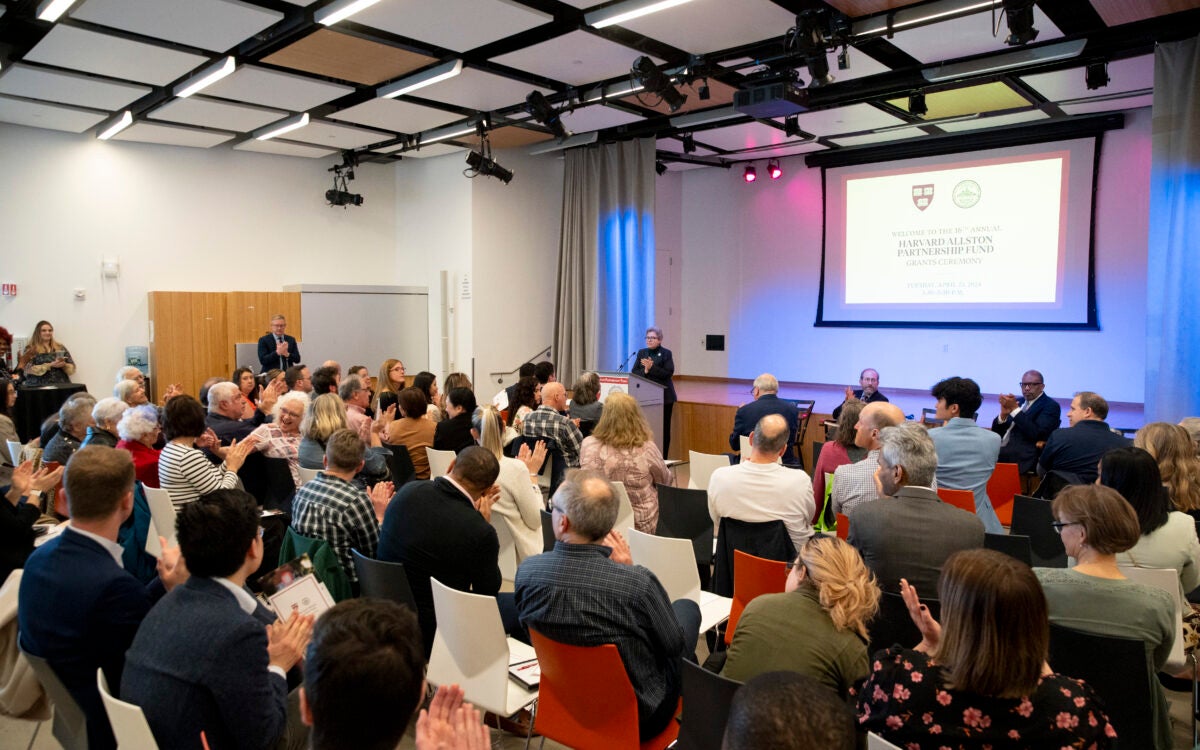
Providing community support

A change of mind, heart, and soul

So how do you track spread of disease? By the numbers

“Telling people not to use ChatGPT is not preparing people for the world of the future,” said Sam Altman, CEO of OpenAI.
Niles Singer/Harvard Staff Photographer
Did student or ChatGPT write that paper? Does it matter?
Sam Altman, CEO of firm that developed app, says ethics do matter, but they need to be rethought (and AI isn’t going away)
Harvard Correspondent
Colleges and universities have been wrestling with concerns over plagiarism and other ethical questions surrounding the use of AI since the emergence of ChatGPT in late 2022.
But Sam Altman, whose company, OpenAI, launched the chatbot app, said during a campus visit Wednesday that AI is such a powerful tool that higher education would be doing its students a disservice by turning its back on it — if that were even possible now. And some of the old rules of ethics will need to be rethought.
“Cheating on homework is obviously bad,” said Altman. “But what we mean by cheating and what the expected rules are does change over time.”
Altman discussed AI in the academy, along with the subtleties of using ChatGPT and other generative AI tools, while at the University to receive the Experiment Cup from Xfund , an early stage venture capital firm. That event was sponsored by the John A. Paulson School for Engineering and Applied Science, Harvard Business School, and the Institute for Business in Global Society ( BiGS ). It featured a conversation between Altman and Xfund co-founder Patrick Chung ’96.
Speaking to the Gazette before the Cup presentation, Altman likened the initial uproar at schools over ChatGPT to the ones that arose after the arrival of calculators and, later, search engines like Google. “People said, ‘We’ve got to ban these because people will just cheat on their homework,’” he said.
Altman, who left Stanford at 19 to start Loopt, a location-sharing social media app, said the reaction to calculators, for instance, was overblown. “If people don’t need to calculate a sine function by hand again … then mathematical education is over,” he said, with a gentle half-smile on his face.
Altman helped launch OpenAI in 2015 and its wildly influential ChatGPT — which can write papers and generate computer programs, among other things — before being removed in 2023 and then reinstated four days later as the company’s CEO.
ChatGPT, he said, has the potential to exponentially increase productivity in the same way calculators freed users from performing calculations by hand, calling the app “a calculator for words.”
He warned, “Telling people not to use ChatGPT is not preparing people for the world of the future.”
Following a bit of back-and-forth about how the ethics of using ChatGPT and other generative AI may differ in various disciplines, Altman came down hard in favor of utility, praising AI’s massive potential in every field.
“Standards are just going to have to evolve,” he said. He dismissed the notion that ChatGPT could be used for writing in the sciences, where the emphasis is on the findings, but not in the humanities, where the expression of ideas is central.
“Writing a paper the old-fashioned way is not going to be the thing,” he said. “Using the tool to best discover and express, to communicate ideas, I think that’s where things are going to go in the future.”
Altman, who last month joined the Department of Homeland Security’s Artificial Intelligence Safety and Security Board , said ethics remains a concern, and one that has yet to be resolved.
“There will be a conversation about what are the absolute limits of the tool, how do we as a society … negotiate ‘Here is what AI systems can never do.’ Where do we set the defaults? How much does an individual user get to move things around within those boundaries? How do we think about different countries’ laws?”
However, that discussion should not slow the development of AI. Instead, Altman described parallel tracks.
“Generally speaking, I do think these are tools that should do what their users want,” he said, before adding an important, if less than specific, caveat: “But there are going to have to be real limits.”
Share this article
You might like.
Harvard Allston Partnership Fund awards grants to 26 Allston-Brighton nonprofits

Choosing Harvard took LyLena Estabine down an uncertain path. The former student co-president has no regrets.
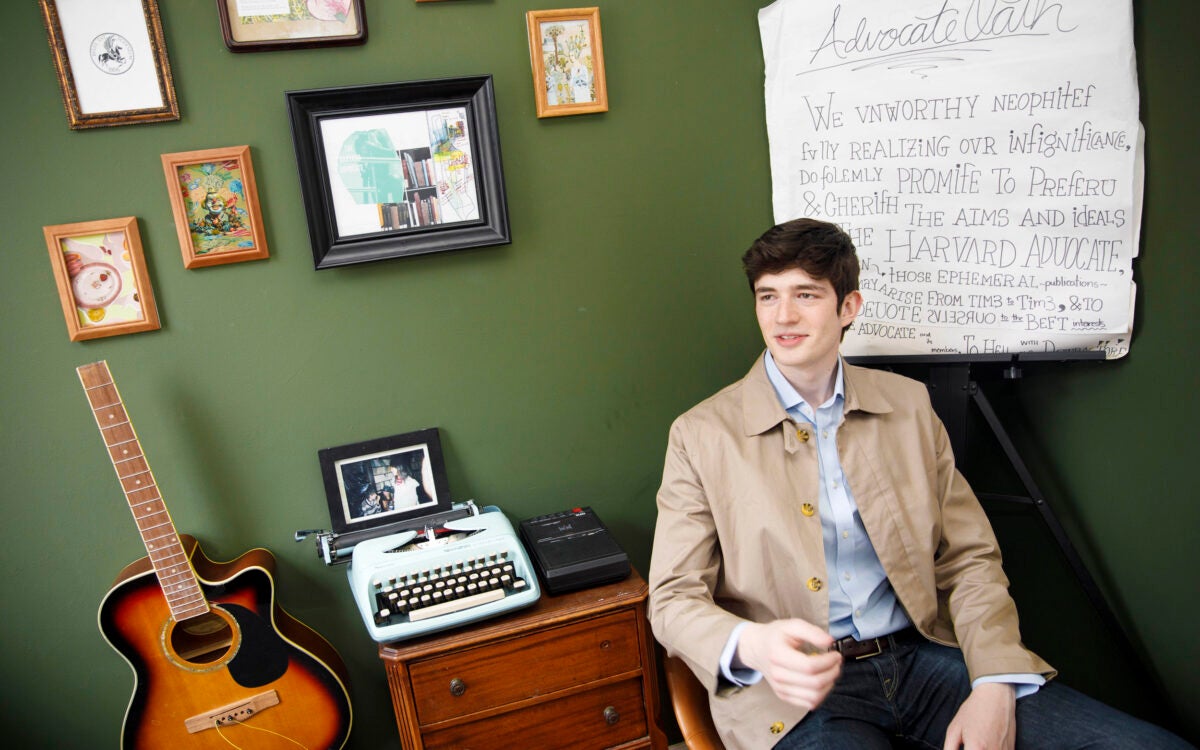
Ivan Specht decided to employ his love of math during pandemic, which led to contact-tracing app, papers, future path
How old is too old to run?
No such thing, specialist says — but when your body is trying to tell you something, listen
Excited about new diet drug? This procedure seems better choice.
Study finds minimally invasive treatment more cost-effective over time, brings greater weight loss
How far has COVID set back students?
An economist, a policy expert, and a teacher explain why learning losses are worse than many parents realize
- Share full article
Advertisement
Supported by
Guest Essay
Saying Goodbye to My Brilliant Friend, the Poetry Critic Helen Vendler

By Roger Rosenblatt
The author, most recently, of “Cataract Blues: Running the Keyboard.”
One makes so few new friends in older age — I mean, real friends, the ones you bond with and hold dear, as if you’d known one another since childhood.
Old age often prevents, or at least tempers, such discoveries. The joy of suddenly finding someone of compatible tastes, politics, intellectual interests and sense of humor can be shadowed, if tacitly, by the inevitable prospect of loss.
I became friends with Helen Vendler — the legendary poetry critic who died last week — six years ago, after she came to a talk I gave at Harvard about my 1965-66 Fulbright year in Ireland. Our friendship was close at the outset and was fortified and deepened by many letters between us, by our writing.
Some critics gain notice by something new they discover in the literature they examine. Helen became the most important critic of the age by dealing with something old and basic — the fact that great poetry was, well, lovable. Her vast knowledge of it was not like anyone else’s, and she embraced the poets she admired with informed exuberance.
The evening we met, Helen and I huddled together for an hour, maybe two, speaking of the great Celtic scholar John Kelleher, under whom we had both studied; of Irish poetry; and of our families. Helen was born to cruelly restrictive Irish Catholic parents who would not think of her going to anything but a Catholic college. When Helen rebelled against them, she was effectively tossed out and never allowed to return home.
She told me all this at our very first meeting. And I told her the sorrows of my own life — the untimely death of my daughter, Amy, and the seven-plus years my wife, Ginny, and I spent helping to rear her three children. And I told Helen unhappy things about my own upbringing. The loneliness. I think we both sensed that we had found someone we could trust with our lives.
I never asked Helen why she had come to my talk in the first place, though I had recognized her immediately. After spending a life with English and American poetry — especially the poetry of Wallace Stevens — how could I not? The alert tilt of her head, the two parenthetical lines around the mouth that always seemed on the verge of saying something meaningful and the sad-kind-wise eyes of the most significant literary figure since Edmund Wilson.
And unlike Wilson, Helen was never compelled to show off. She knew as much about American writing as Wilson, and, I believe, loved it more.
It was that, even more than the breadth and depth of her learning, that set her apart. She was a poet who didn’t write poetry, but felt it like a poet, and thus knew the art form to the core of her being. Her method of “close reading,” studying a poem intently word by word, was her way of writing it in reverse.
Weeks before Helen’s death and what would have been her 91st birthday, we exchanged letters. I had sent her an essay I’d just written on the beauty of wonder, stemming from the wonder so many people felt upon viewing the total solar eclipse earlier this month. I often sent Helen things I wrote. Some she liked less than others, and she was never shy to say so. She liked the essay on wonder, though she said she was never a wonderer herself, but a “hopeless pragmatist,” not subject to miracles, except upon two occasions. One was the birth of her son, David, whom she mentioned in letters often. She loved David deeply, and both were happy when she moved from epic Cambridge to lyrical Laguna Niguel, Calif., to be near him, as she grew infirm.
Her second miracle, coincidentally, occurred when Seamus Heaney drove her to see a solar eclipse at Tintern Abbey. There, among the Welsh ruins, Helen had an astonishing experience, one that she described to me in a way that seemed almost to evoke Wordsworth:
I had of course read descriptions of the phenomena of a total eclipse, but no words could equal the total-body/total landscape effect; the ceasing of bird song; the inexorability of the dimming to a crescent and then to a corona; the total silence; the gradual salience of the stars; the iciness of the silhouette of the towers; the looming terror of the steely eclipse of all of nature. Now that quelled utterly any purely “scientific” interest. One became pure animal, only animal, no “thought-process” being even conceivable.
One who claims not to know wonders shows herself to be one.
She was so intent on the beauty of the poets she understood so deeply, she never could see why others found her appreciations remarkable. Once, when I sent her a note complimenting her on a wonderfully original observation she’d made in a recent article, she wrote: “So kind of you to encourage me. I always feel that everything I say would be obvious to anyone who can read, so am always amazed when someone praises something.”
Only an innocent of the highest order would say such a beautiful, preposterous thing. When recently the American Academy of Arts and Letters awarded her the Gold Medal for Belle Lettres and Criticism, Helen was shocked.
“You could have floored me when I got the call,” she wrote to me, adding: “Perhaps I was chosen by the committee because of my advanced age; if so, I can’t complain. The quote that came to mind was Lowell’s ‘My head grizzled with the years’ gold garbage.’”
She was always doing that — attaching a quotation from poetry to a thought or experience of her own, as if she occupied the same room as all the great poets, living with them as closely as loved ones in a tenement.
Shelley called poets the “unacknowledged legislators of the world.” I never fully got that famous line. But if the legislators’ laws apply to feeling and conduct, I think he was onto something. If one reads poetry — ancient and modern — as deeply as Helen did, and stays with it, and lets it roll around in one’s head, the effect is transporting. You find yourself in a better realm of feeling and language. And nothing of the noisier outer world — not Donald Trump, not Taylor Swift — can get to you.
In our last exchange of letters, Helen told me about the death she was arranging for herself. I was brokenhearted to realize that I was losing someone who had given me and countless others so much thought and joy. Her last words to me were telling, though, and settled the matter as only practical, spiritual Helen could:
I feel not a whit sad at the fact of death, but massively sad at leaving friends behind, among whom you count dearly. I have always known what my true feelings are by whatever line of poetry rises unbidden to my mind on any occasion; to my genuine happiness, this time was a line from Herbert’s “Evensong,” in which God (always in Herbert, more like Jesus than Jehovah), says to the poet, “Henceforth repose; your work is done.”
She closed her letter as I closed my response. “Love and farewell.”
Roger Rosenblatt is the author, most recently, of “Cataract Blues: Running the Keyboard.”
The Times is committed to publishing a diversity of letters to the editor. We’d like to hear what you think about this or any of our articles. Here are some tips . And here’s our email: [email protected] .
Follow the New York Times Opinion section on Facebook , Instagram , TikTok , WhatsApp , X and Threads .

Choose Your Test
Sat / act prep online guides and tips, 64 great colleges that don't require essays to apply.
College Info , College Essays

If the thought of writing a college essay fills you with terror, you might be wondering: are there any colleges that don't require essays?
The answer is yes, there are! This guide will give you an overview of colleges that don't require admissions essays, how to find these schools, and whether you should apply to one or not. We'll wrap up with a list of 64 colleges with no essay requirement that you can apply to.
Why Do Some Colleges Not Require an Essay?
In general, college essays help schools get a sense of you as a person—beyond your academic record, GPA, and test scores. They give you a chance to clearly articulate your goals and also give admissions officers a better idea of how you'll fit within the school's community. Finally, essays are helpful because they provide schools with concrete evidence of your writing ability.
However, there are many colleges that don't require essays for admissions. What are some reasons why? Let's take a look at the three biggest ones:
#1: Limited Resources
It takes a lot of admissions officers' time and energy to read and evaluate college essays.
At smaller schools with fewer resources, and even at larger schools that enroll tens of thousands of students, the resource costs associated with reading each essay for every single student might outweigh the benefits of getting additional information on applicants beyond GPAs, test scores, and transcripts.
Schools sometimes balance these concerns by requiring essays only for the most competitive programs (usually things such as engineering and nursing) or for scholarships, for which the additional information might be more instrumental in making decisions.

They need to use those limited resources for coffee.
#2: Specific Admissions Cutoffs/Criteria
Many colleges, particularly public schools, admit students based on a type of selection index, which tabulates some combination of GPA, test scores, and/or class rank.
If students meet the minimum index score cutoff, they will be admitted. In this case, the school might simply feel that additional information from an essay isn't necessary for making a decision regarding whether a student will be successful or not.
Selection indices are also often different for in-state and out-of-state students, with the latter being subject to more stringent academic criteria.
In addition, the selection index is sometimes used for scholarships, with students with higher index scores being awarded more money.
Schools with selection indices do often require or recommend college essays for borderline candidates so that students can provide additional information on why they'd be a good fit at the school in spite of not meeting the stated academic criteria.
#3: Make Admissions Process Easy and Appealing
Some colleges hope that by making the admissions process easy and requiring only a transcript, test scores, and basic demographic information, they'll attract a wider variety of applicants.
By presenting their application process as a simple alternative to more intensive processes that require letters of recommendation, essays, and so on, they can attract students who are on the fence about applying to college at all .
They could even potentially motivate highly qualified applicants to use them as one of their safety or match schools because the students won't need to write additional essays or do extra work to apply.
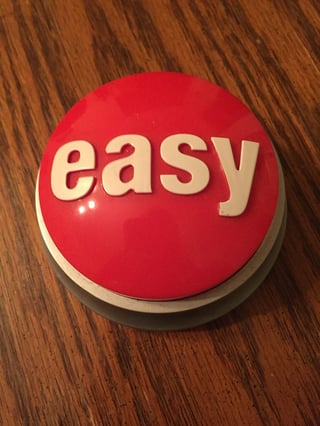
Some applications seem like you just have to click to apply!
How to Find Colleges That Don't Require Essays
There are over 4,000 postsecondary educational institutions in the US, and over 80 of these schools don't require essays for admission.
If you want to know whether a particular school requires an essay for admission, Google "[School Name] freshman admission requirements" or "[School Name] admissions essay." This should pull up pages from the school's official website, with links to guidelines on admission essays.
If, however, you're looking more generally for schools that don't require essays, you can check out our list of 64 schools below or try one of the following starting places:
Public Universities in Your State
A significant number of public universities don't require essays for admissions.
Even if the major public schools in your state (such as the University of Illinois Urbana–Champaign or UCLA) require essays for admission, you might find that the smaller campuses and smaller or more specialized state schools might not require essays. So be sure to check those out!
You can actually get a pretty robust list of schools in your state by simply Googling "[State Name] colleges." Do this and a list of colleges will appear across the top of your screen. Thanks, Google!
Schools With Automatic Admissions Criteria
A school that has criteria for automatic admission (e.g., if you live in-state and have a particular class rank, GPA, and/or test score profile) might not require applicants who meet the automatic criteria to submit essays with their applications.
However, don't assume that just because you meet automatic admissions criteria that you won't need to write an essay.
At UT Austin, for example, all students must submit an essay , regardless of whether they meet the automatic admissions criteria. Although you could probably write just a straightforward paragraph in the essay section and still get admitted (since you meet the criteria), you'd likely be hurting your scholarship potential, not to mention jeopardizing your chances of being let into your desired major.
Small Private Liberal Arts Institutions
Another group of schools that might not require essays are smaller, private liberal arts institutions. These types of schools often serve a fairly niche market and might simply not get a high enough application volume to need essays to differentiate applicants.
Community Colleges
Local community colleges do not require essays for enrollment, since most allow anyone to enroll. Some even have automatic transfer agreements with local four-year universities. However, if you want to transfer to a particular four-year university after you finish at a community college, you might very well have to write an essay—so you could just be putting off the inevitable!

You can find a lot of no-essay colleges for your basket!
Complete List: 64 Colleges That Don't Require Essays
The following chart contains 64 colleges with no essay requirement, organized by state.
Note that these are far from the only no-essay college applications —just some of the most notable. Follow our guidelines above for finding additional essay-free colleges.
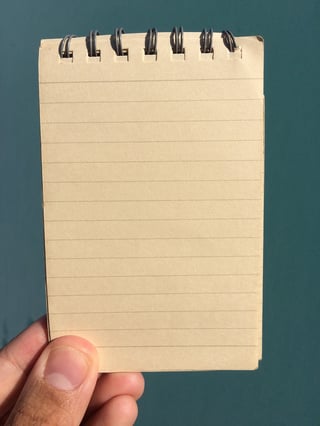
Should You Apply to a College That Doesn't Require an Essay?
If you're reading this article, you're clearly worried about writing application essays for one reason or another. Maybe you're concerned about having enough time to finish everything. Or maybe you think your writing is terrible.
Here are some reasons to write college essays in spite of your misgivings:
#1: You Want to Apply to the Most Selective Schools
If you're hoping to apply to the most selective schools , you'll almost certainly have to write at least one essay. The most highly ranked no-essay school that I could find was the University of Pittsburgh—a great school. But if you're going for UChicago , MIT , Stanford , or an Ivy League-level school , you'll have to write an essay.
#2: You Want a Scholarship
Even if you do apply to a school that doesn't require an essay, you might still have to write an essay if you want to apply for the most competitive scholarships .
#3: You Have Special Circumstances to Explain
If you have any kind of special circumstance to explain—say, a dip in your grades one year due to a family illness—you definitely want to write about it in an essay. This will help you compensate for any perceived deficits in your academic record and also prevent you from being penalized in the admissions process for the vagaries of life.
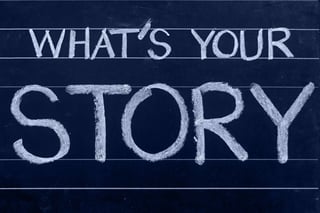
There's value in telling your story to the admissions committee.
#4: You're a Good Writer
I'm thinking that most strong writers are going to actively want to write college essays, but just in case: if writing is one of your strengths, definitely write an essay. You want to show off your best qualities to admissions officers, after all! If your primary concern is time, use something like the Common Application so you don't have to write a new essay for every school.
#5: The Essay Prompt Is Short
Some college essays are barely essays at all. Some required essays have just a 250-word limit, and 500 words is pretty standard. For reference, the first section of this article—"Why Do Some Colleges Not Require Essays?"—is about 450 words, including sub-headings. That's not so bad!
#6: You Can Get Help
Although it's important that your college essays are your own work, you're allowed to get help with them! Colleges expect you to put your best foot forward, so if that means discussing ideas with parents and teachers, and having someone else look over your rough drafts and offer suggestions, that's completely fine. You don't have to go at it completely alone.
#7: You Can Reuse an Essay for All Your Schools
For schools that use the Common App , Coalition App , or Universal College App , you can generally use one essay for all your colleges. Some schools might require additional supplemental essays, though, so be sure to look that up in advance to avoid being blindsided later.
So Should I Write an Essay?
If it happens that all the schools you want to apply to don't require essays, then great! But overall, I'd say don't let the fact that a school has one (or even two) essays stop you from applying if you're genuinely interested in going there.
If you find writing essays stressful or if you're time-limited, there's nothing wrong with using some strategies to limit the number of polished essays you need to produce (such as using the Common App) and applying to a mix of essay and no-essay schools.
Key Takeaways: Colleges That Don't Require Essays
There are actually tons of colleges that don't require essays. Here are some common reasons why a college might not require an essay:
- Limited resources—it takes a lot of time and effort to read an essay by each applicant
- They might have certain GPA and/or test score admissions criteria and feel as though the information provided by an essay isn't necessary
- To make it more appealing to students by having an easier application process
So how can you find college applications without essays? Here are some places to start:
- Public schools in your state, especially smaller ones in case the bigger ones do require essays
- Schools with automatic admissions criteria—if you qualify for admission, you might not need to write an essay
- Smaller liberal arts institutions
- Community colleges
When it comes down to it, though, should you apply to colleges with no essay requirement? Here are some reasons you might want to write a college essay, even if you're apprehensive:
- The most selective colleges usually do require essays
- Scholarship applications for particular schools often require essays
- If you have special circumstances to explain, plan on writing an essay
- Strong writers should write essays to put their best foot forward
- Word limits are often very short—think 250-500 words (that's just a few paragraphs!)
- You're allowed (and encouraged) to get help with brainstorming ideas and revising drafts
- If you use an application system that can send applications to multiple schools, such as the Common App, Coalition App, or Universal College App, you might be able to write just one essay for all the schools you're applying to

No essay, no tears!
What's Next?
Need more help looking for colleges? See our step-by-step guide to college research . Also, check out how to decide where to go to college and the difference between a college and a university !
Decided to write an essay after all and need some help? Check out our comprehensive guide to writing a college essay and our guide to writing the "why this college" essay . Be sure to avoid these 10 college essay mistakes , too.

Ellen has extensive education mentorship experience and is deeply committed to helping students succeed in all areas of life. She received a BA from Harvard in Folklore and Mythology and is currently pursuing graduate studies at Columbia University.
Ask a Question Below
Have any questions about this article or other topics? Ask below and we'll reply!
Improve With Our Famous Guides
- For All Students
The 5 Strategies You Must Be Using to Improve 160+ SAT Points
How to Get a Perfect 1600, by a Perfect Scorer
Series: How to Get 800 on Each SAT Section:
Score 800 on SAT Math
Score 800 on SAT Reading
Score 800 on SAT Writing
Series: How to Get to 600 on Each SAT Section:
Score 600 on SAT Math
Score 600 on SAT Reading
Score 600 on SAT Writing
Free Complete Official SAT Practice Tests
What SAT Target Score Should You Be Aiming For?
15 Strategies to Improve Your SAT Essay
The 5 Strategies You Must Be Using to Improve 4+ ACT Points
How to Get a Perfect 36 ACT, by a Perfect Scorer
Series: How to Get 36 on Each ACT Section:
36 on ACT English
36 on ACT Math
36 on ACT Reading
36 on ACT Science
Series: How to Get to 24 on Each ACT Section:
24 on ACT English
24 on ACT Math
24 on ACT Reading
24 on ACT Science
What ACT target score should you be aiming for?
ACT Vocabulary You Must Know
ACT Writing: 15 Tips to Raise Your Essay Score
How to Get Into Harvard and the Ivy League
How to Get a Perfect 4.0 GPA
How to Write an Amazing College Essay
What Exactly Are Colleges Looking For?
Is the ACT easier than the SAT? A Comprehensive Guide
Should you retake your SAT or ACT?
When should you take the SAT or ACT?
Stay Informed
Get the latest articles and test prep tips!
Looking for Graduate School Test Prep?
Check out our top-rated graduate blogs here:
GRE Online Prep Blog
GMAT Online Prep Blog
TOEFL Online Prep Blog
Holly R. "I am absolutely overjoyed and cannot thank you enough for helping me!”

IMAGES
VIDEO
COMMENTS
Follow this advice to know what not to write about in your college essay! 1. Don't restate the Essay prompt. Start your essay with a hook. Start with dialogue. Start by setting the scene. Don't start by restating the essay topic! The reader knows the essay prompts, so just start telling your story.
Going over the word limit. Part of showing your brilliance is being able to work within arbitrary rules and limitations. Going over the word count points to a lack of self-control, which is not a very attractive feature in a college applicant. Repeating the same word (s) or sentence structure over and over again.
Have a fresh pair of eyes give you some feedback. Don't allow someone else to rewrite your essay, but do take advantage of others' edits and opinions when they seem helpful. ( Bates College) Read your essay aloud to someone. Reading the essay out loud offers a chance to hear how your essay sounds outside your head.
Since one of the main goals of the essay is to help you stand out, it doesn't really help to do the same thing that countless other people are doing. For example, almost everyone writing about losing the big game ends up writing the same "lessons learned" about humility, teamwork, overcoming disappointment, etc.
Avoid focusing on writing about a trip in general terms, since this won't make your essay a memorable read. 10. Privilege or Luck. If you've had a lot of luck or privilege in life, such as growing up in a wealthy community, avoid using this as a college essay topic.
The best way to make an essay unique is to tell your story in a way nobody else can. You can do this by including thoughtful details and personal insights, which include your own thoughts, feelings, and reactions to the specific examples you plan on writing about. This way, it'd be difficult for anyone else to tell the story the way you just ...
Toward that end, it helps to know what not to write about in a college essay. Themes that consistently make the "worst college essay topics" list include cliches, stories that college admissions officers have read some version of countless times before, and any topic that reflects negatively on your personality.
In general, you want to avoid something college admissions officers have already read hundreds of times before, including topics related to: Adapting to a new culture. Developing new and foreign habits. Acquiring a second language. Finding it difficult to fit in.
Table of contents. Essay 1: Sharing an identity or background through a montage. Essay 2: Overcoming a challenge, a sports injury narrative. Essay 3: Showing the influence of an important person or thing. Other interesting articles. Frequently asked questions about college application essays.
Sample College Essay 2 with Feedback. This content is licensed by Khan Academy and is available for free at www.khanacademy.org. College essays are an important part of your college application and give you the chance to show colleges and universities your personality. This guide will give you tips on how to write an effective college essay.
Making an all-state team → outstanding achievement. Making an all-state team → counting the cost of saying "no" to other interests. Making a friend out of an enemy → finding common ground, forgiveness. Making a friend out of an enemy → confront toxic thinking and behavior in yourself.
Identifying an experience that exemplifies that value or fundamental truth. Writing a thoughtful essay that uses your "uninteresting" experience to say something interesting about yourself. 1. Get the Ball Rolling. There are many different practices you might find useful as you start brainstorming your college essay.
Harvard College Writing Center 5 Asking Analytical Questions When you write an essay for a course you are taking, you are being asked not only to create a product (the essay) but, more importantly, to go through a process of thinking more deeply about a question or problem related to the course. By writing about a
Use your essays to empower your chances of acceptance, merit money, and scholarships.". This college essay tip is by Dr. Rebecca Joseph, professor at California State University and founder of All College Application Essays, develops tools for making the college essay process faster and easier. 15. Get personal.
They're also the only opportunity you get (unless the college offers interviews) to showcase your personality, values, and voice. To avoid writing your essay on a topic that might earn you a rejection letter, check out the five topics you should never write about in your college essay below. 1. Controversial or Hot-Button Issues.
Keep the comparison simple. Use a few other literary devices such as imagery or anecdotes to enrich your extended metaphor. Avoid making cliché comparisons. Don't exaggerate or make an unrealistic comparison. In the example below, a student uses the extended metaphor of a museum to explore the theme of identity.
How to Structure Your Essay. A college application essay (like any academic essay) should have an introduction, a conclusion, and body paragraphs. Additionally, it should have overall coherence (that is, it should make a point) and cohesion (that is, it should flow well from paragraph to paragraph).
Technique #1: humor. Notice Renner's gentle and relaxed humor that lightly mocks their younger self's grand ambitions (this is different from the more sarcastic kind of humor used by Stephen in the first essay—you could never mistake one writer for the other). My first dream job was to be a pickle truck driver.
This college essay tip is by Abigail McFee, Admissions Counselor for Tufts University and Tufts '17 graduate. 2. Write like a journalist. "Don't bury the lede!" The first few sentences must capture the reader's attention, provide a gist of the story, and give a sense of where the essay is heading.
DON'T copy and paste. With upwards of 25 or more essays to write for a balanced college list of 10-12 schools, it's tempting for students to repurpose essays across applications if the prompts are similar, especially when working down to the wire. While students can use the same main essay on the Common App for multiple schools, we always ...
Tips on How to Write a Good College Essay. Say what you need to say and avoid unnecessary filler in your essay. A strong college essay is transparent, honest, and meaningful. It should portray you in a positive light, so be cautious about discussing negative experiences or personal weaknesses. Focus on writing something you care about rather ...
College essays are so unnecessarily draining. Rant. I hate that we live in a culture where our college essays have to be this unique work of art. I hate it I hate it hate. Like I'm working on my drafts, and reading them back I'm thinking to myself "hm this isn't really original but I think it's pretty well done" but I'm CONSTANTLY ...
The Reading and Writing Section. ... Show colleges you're ready: register for the SAT from your College Board account. My SAT. Online Registration. Fee Waivers. International Testing. Additional Registration Options. Fees and Refunds. Change or Cancel Your Registration. K-12 Educators: Student Registration & Fee Waivers. See More. Accommodations.
The Purdue On-Campus Writing Lab and Purdue Online Writing Lab assist clients in their development as writers—no matter what their skill level—with on-campus consultations, online participation, and community engagement. The Purdue Writing Lab serves the Purdue, West Lafayette, campus and coordinates with local literacy initiatives.
College Board provides a variety of tools and resources to help educators prepare for test day and analyze results. Assessment Reporting for K-12 Educators View and analyze student scores for the entire SAT Suite. Sign In School Code Search Search for K-12 school codes, also known as College Entrance Examination Board (CEEB) codes. ...
"Standards are just going to have to evolve," he said. He dismissed the notion that ChatGPT could be used for writing in the sciences, where the emphasis is on the findings, but not in the humanities, where the expression of ideas is central. "Writing a paper the old-fashioned way is not going to be the thing," he said.
After video surfaced on social media, the student, Khymani James, said on Friday that his comments were wrong. By Katherine Rosman Katherine Rosman reported from the campus of Columbia University ...
So, what makes a school the right one? It's not the prestige of a name or the campus amenities. First and foremost, it's the teachers. Great teachers help make a college great because they ...
Weeks before Helen's death and what would have been her 91st birthday, we exchanged letters. I had sent her an essay I'd just written on the beauty of wonder, stemming from the wonder so many ...
Here are some reasons to write college essays in spite of your misgivings: #1: You Want to Apply to the Most Selective Schools. If you're hoping to apply to the most selective schools, you'll almost certainly have to write at least one essay. The most highly ranked no-essay school that I could find was the University of Pittsburgh—a great school.